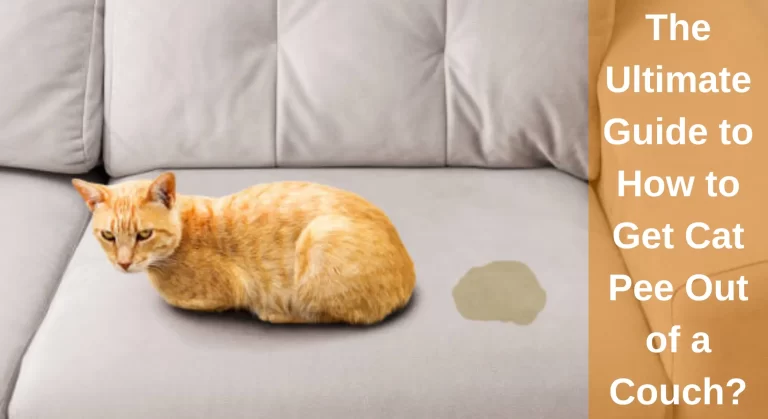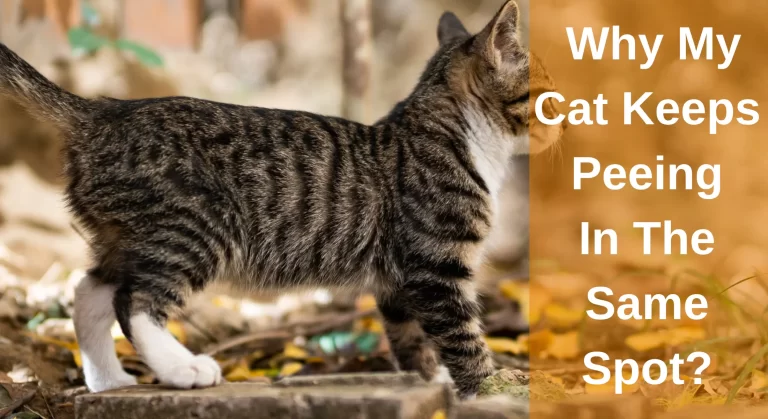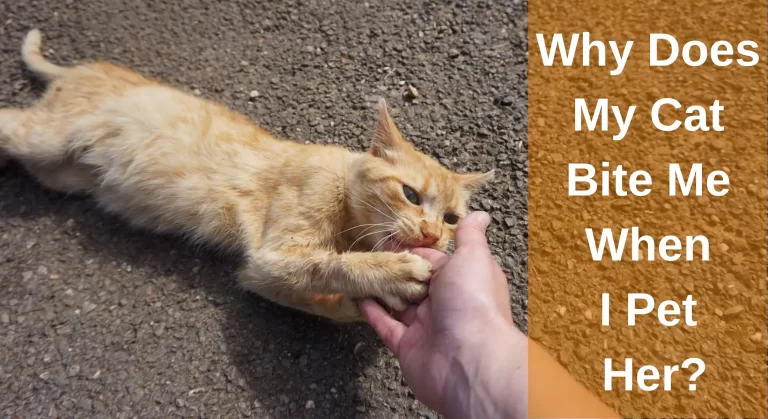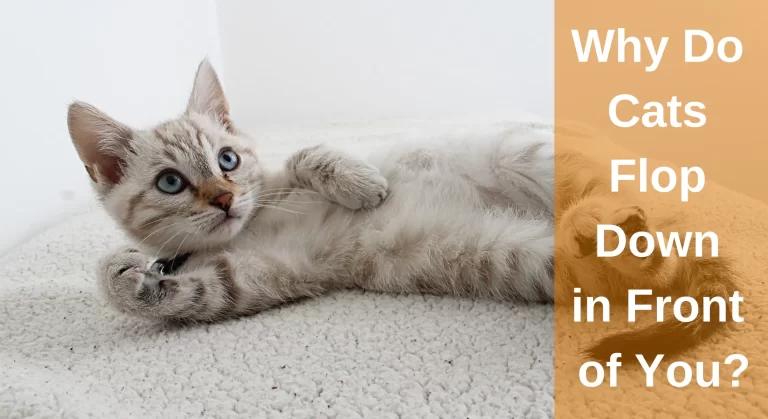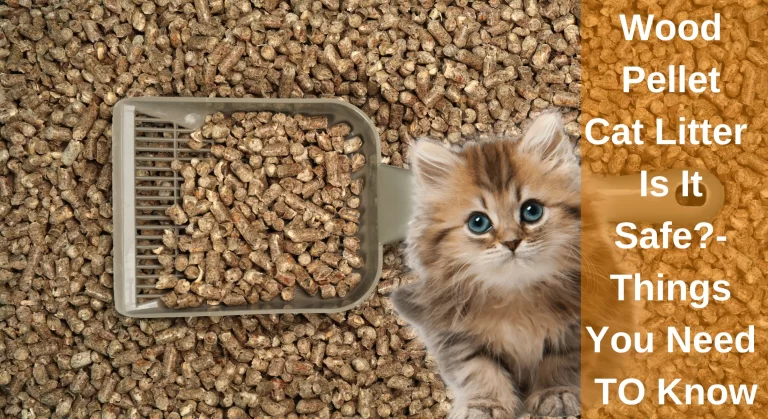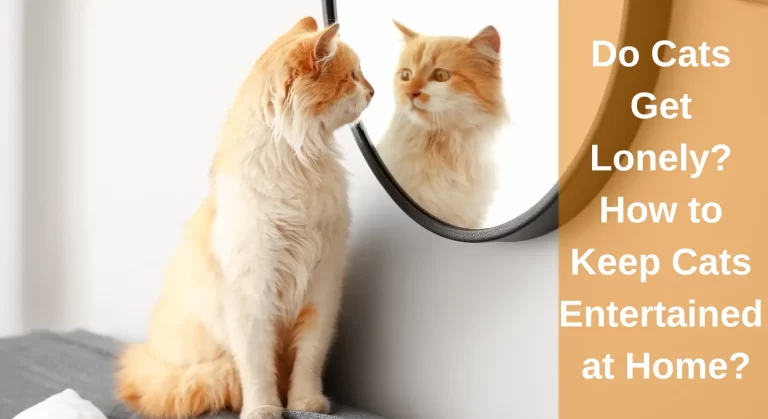Why Is My Cat Throwing Up Undigested Food? [Explained]
As a cat parent, you may have had to take care of cat puke now and then, especially coughed-up hairballs. Cleaning up messes like these is the less fun part of being a cat owner. However, if your cat is throwing up more frequently, with food particles, and has other symptoms of illness along with throwing up, you may be worried.
It’s crucial to take vomiting in cats seriously. This article is all about cat vomit, its reasons, and what you can do to relieve your pet.
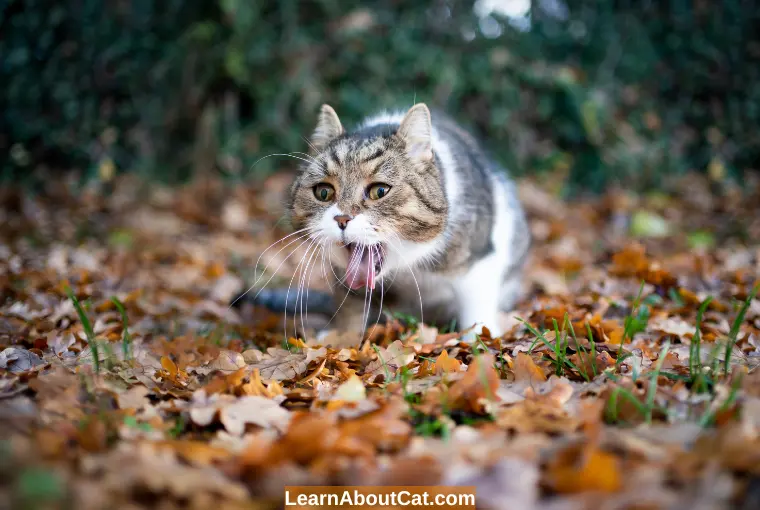
Vomiting VS Regurgitation
Before diving into the details of Why Is My Cat Throwing Up Undigested Food? it is vital to know the difference between actual vomit and regurgitation. This can help your veterinarian make a diagnosis.
The most important difference between both is whether food has reached the stomach or not. Vomit comes from the stomach and contains partially digested food, stomach acids, and bile. Vomiting is an active process where your pet may drool, retch and contract its abdominal muscles to expel stomach contents. This is because vomiting is opposite to the normal peristaltic movement of the gut.
Regurgitation is a passive process where your pet will simply eject food and water that’s in the oesophagus. The contents have not yet reached the stomach. No extra effort is needed at your cat’s end; you will simply see them drop their head, and the contents will just pour out. This typically happens half an hour to two hours after you last fed your cat.
Reasons Why Is My Cat Vomiting Undigested Food?
There are several reasons for this. Understanding them will make it easier for you to help your pet:
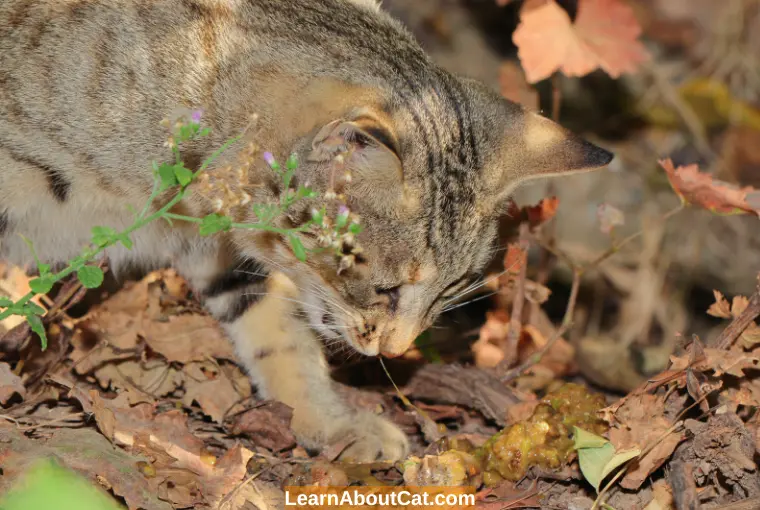
1. Your Pet Ate Too Fast
There may be no reason to worry; your cat just eats rapidly. Making a note of how much time your cat takes for it to eat will help when you take it to the vet. You can buy a food puzzle for your pet, increasing its eating time and adding to play and stimulation. If the problem persists after purchasing a food puzzle, take your furry friend to the vet.
2. Food Allergies
Just like humans, our furry friends get allergies too. If you changed their diet recently, chances are there is an ingredient in the new food they are allergic to. If you are feeding your homemade cat meals, your vet may recommend giving store-bought, sensitive systems food. Their little bodies generally develop an allergy to protein (which is ironic, considering they are carnivores).
Try giving your cat a hydrolyzed diet, which is basically food with broken-down protein. The protein is artificially broken down into its basic component, the amino acids. This way, when food enters your feline’s gut, there will be nothing to trigger an allergic reaction.
Also, Check Out: Why Is My Cat Throwing Up Food But Acting Normal?
3. Hairballs
Cats are always cleaning themselves. To add to this, your cat’s tongue has tiny, hook-like structures that cling onto the hair while they are licking themselves. This pulls onto their coat, and the dead or weakened hair entangles into the hooks and is ingested by the feline. They generally pass through their system without causing any harm. Sometimes, hair can get clumped together in your cat’s stomach, forming the hairball your cat throws up. Of course, that is also where food goes, so it’s no surprise undigested food comes right up with the hairball.
Don’t worry if this happens once in a while. Still, if you notice your cat having trouble pushing them out or is in pain or it is frequently happening, it is a good idea to take care of it. Brush your cat regularly so that your pet ingests less hair, and you can get over-the-counter supplements that will help prevent hairballs altogether.
Also Read: Why Is My Cat Throwing Up Hairballs Daily?
4. Gastritis
If your cat ate something it shouldn’t, it is possible they have irritated its stomach lining. There may be blood in the vomit if this is the case. There will also be additional symptoms like lethargy, dehydration, and a decreased appetite. There are other causes like parasites, motility disorders, constipation, and ingestion of grass.
5. Diseases
Vomiting can signify a more serious illness such as pancreatitis, liver failure, gallbladder inflammation, infection, kidney failure, neurological diseases, tumours and more.
Cat Vomiting Food: When to Worry
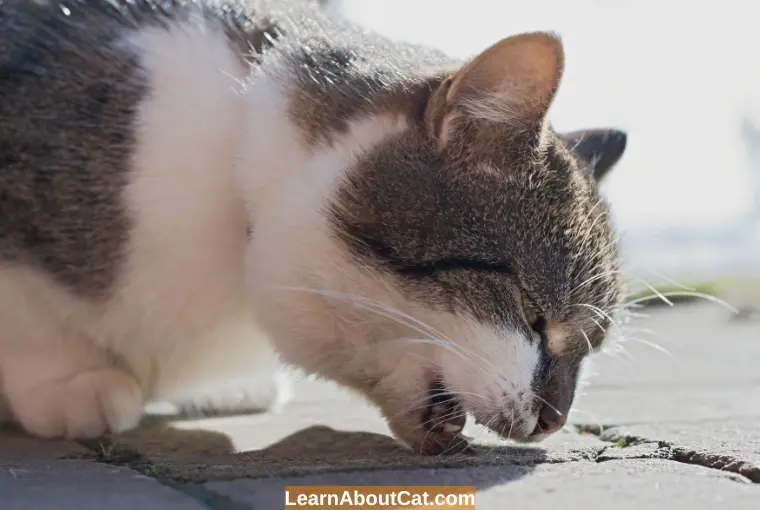
Your cat should be examined by a vet as soon as possible if she throws up more than three times, has trouble swallowing food, and appears exhausted. She might just be experiencing a fleeting sickness, but if it’s something more serious, treatment must start immediately. It’s generally not an emergency unless your cat seems to be in extreme pain, is vomiting blood, or refuses to move; in that case, it could be liver disease.
Nevertheless, vomiting is never a good sign. Even if the situation is chronic, you should take your cat to the vet for a thorough examination.
How To Stop My Cat from Throwing Up
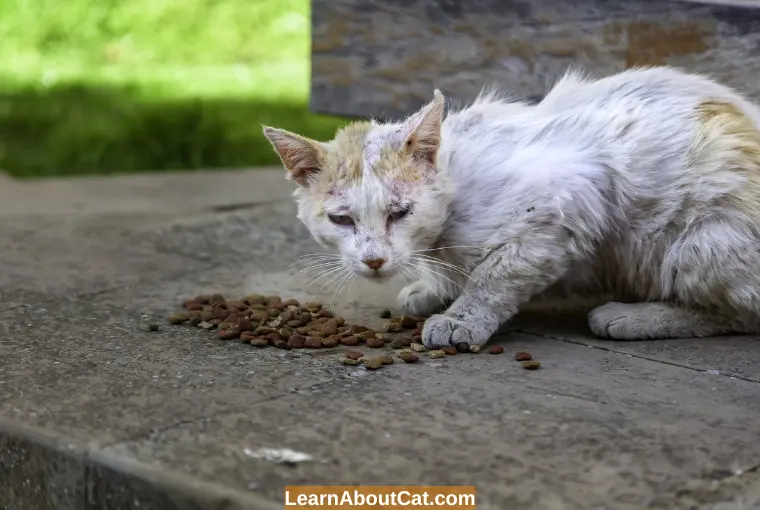
There are a few home remedies you can try before taking your cat to the vet, but first, you must assess exactly how sick your cat really is. Home remedies will worsen the situation if your cat needs urgent care as more and more time will lapse without medical attention. Here are some ways to know your cat is a candidate for home remedies:
Home Remedies
If your cat only threw up once or twice at max.
Assess for dehydration: carefully lift your cat’s lips to check its gums. They should be pink and moist on touch (do this from behind to avoid getting attacked). Also, pinch your cat’s fur. It should retract in less than two seconds.
If your pet passes the test, you can try these home remedies:
- One cup of water with 1/4 teaspoon garlic chopped up and boiled for 15-20 minutes. Give your cat this concoction 4-6 times a day via a syringe.
- Give your kitty 1/4th of a 10mg tablet of Pepcid (famotidine) twice daily by dropping it into its throat. Alternatively, you can mix it into food.
- One capsule of Slippery Emm 400mg once a day.
What Can I Give My Cat for Vomiting?
As long as your cat isn’t dehydrated, you can give your cat Pepsid ¼ tablet twice a day or Slippery Emm 400mg once a day. You can also boil 1/4th teaspoon of ginger in one cup of water and give it throughout the day.
What Should I Do if My Cat Keeps Throwing Up Undigested Food with Hairballs?
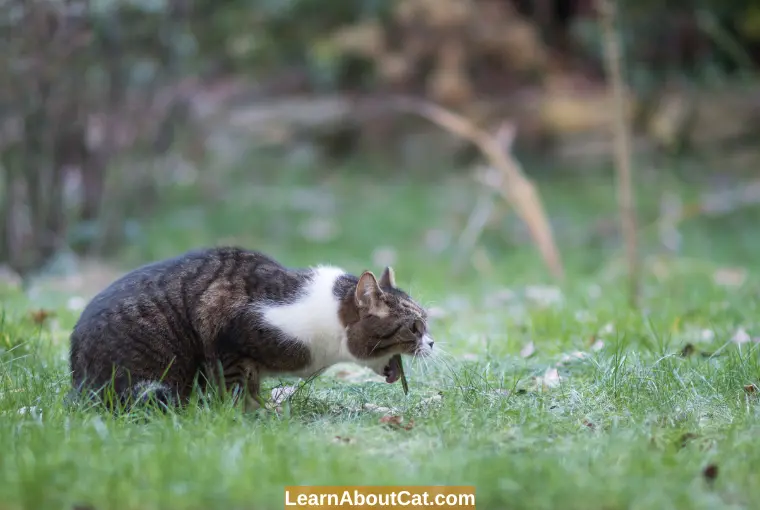
If your cat keeps throwing up hairballs, it may be because they are getting inadequate proteins in their diet. The fibrous structure of felines’ hair and nails is made up of proteins such as keratin and collagen.
Cats specifically require an external source of the amino acids taurine and arginine as their bodies cannot synthesize them. These amino acids help cats produce more collagen and regenerate cells, which makes solid and healthy fur.
Therefore, if you want fewer hairball vomits, consider switching to a high-quality protein diet. It would be best if you also brushed your furball frequently so that loose hairs gather into the brush rather than their stomach.
How Do I Get My Cat to Eat Slower?
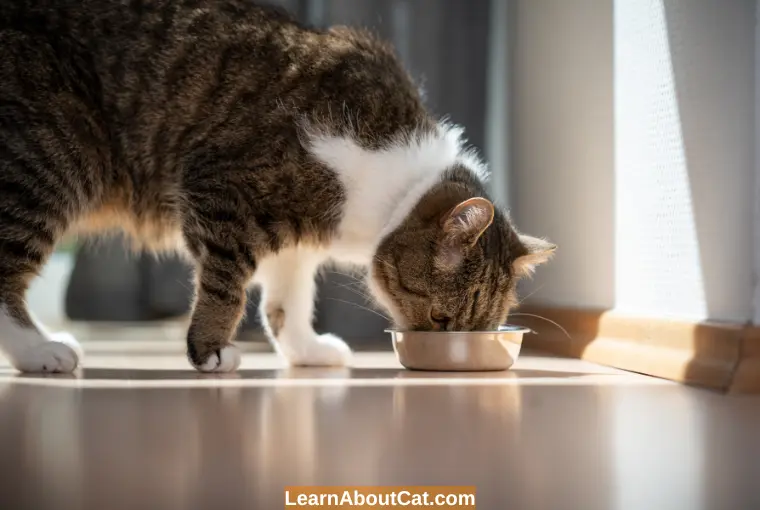
Here are some strategies to prevent your pet from stuffing itself too quickly:
1. Use a Bigger Bowl
Using a baking pan or a small tray around 9-13 inches in length will make your cat move around while eating. Instead of your pet getting mouthfuls of food, they will have to work around a bit to eat, which should slow them down.
2. Adding a Non-Edible Item
You can put a tennis ball or a golf ball in between the cat bowl so that there is an obstacle in their food. Manoeuvring the obstacle will inevitably slow them down.
3. Automatic Feeders
Automatic feeders serve small portions of food several times a day. However, because diet cannot be monitored or controlled, automatic feeders are generally not recommended and can lead to weight gain in your pet.
4. Food Mazes
You can get food maze bowls for your pet. This is a great way to include play into mealtimes, stimulate their intelligent minds and make them “work” for their food (which they do in the wild anyway). All this extra activity will slow their eating rate down.
Puking Kittens Need Special Attention
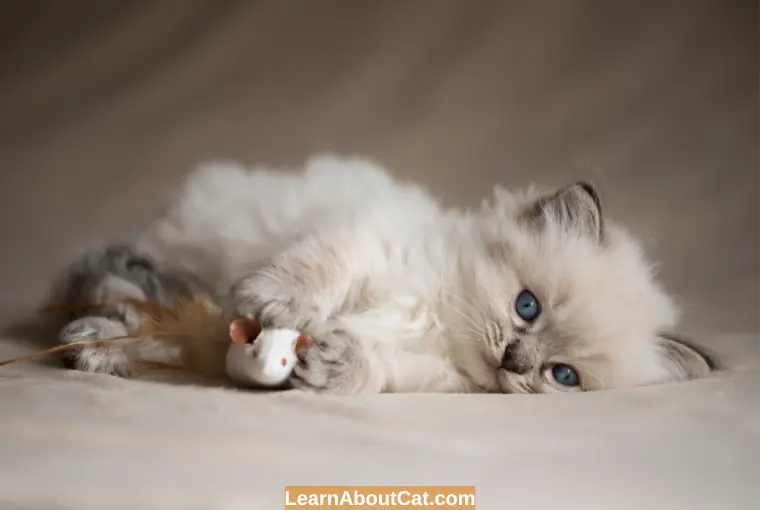
Kittens throw up for the same reasons cats do. Parasitic infection, food allergies, and hairballs, to name a few. However, kittens are different from fully grown cats regarding energy levels and playfulness. These pets will literally playfully nibble on everything around the house, including shoestrings, ribbons, thread, artificial plants, and fabric.
A piece can dislodge from the object, and your kitten could have swallowed it, causing an obstruction. This is especially dangerous because kittens have small gastrointestinal systems. Sometimes, you may see pieces of the object in their vomit. Other times, they might just be able to pass it with their stool.
However, if your kitten is extremely lethargic, vomiting frequently, and has diarrhoea, this means they have an obstruction. It may be necessary to perform surgery on your pet to remove the obstruction, so make immediate arrangements to take it to the veterinarian. This is important because kittens lose body mass fast.
Frequently Asked Questions
Wrap Up!
Vomiting in cats should be addressed, especially if your feline has accompanying symptoms like lethargy and refusal to eat. At best, it could simply be your cat ingesting too much hair or your pet eating too fast. At worst, it might be a symptom of severe disease.
Related Posts:
Who is Isabella?
My name is Isabella, and I am a dedicated and knowledgeable cat enthusiast. With years of experience caring for cats and a deep love for felines, I made a mission to help other cat lovers navigate the challenges of cat ownership.

